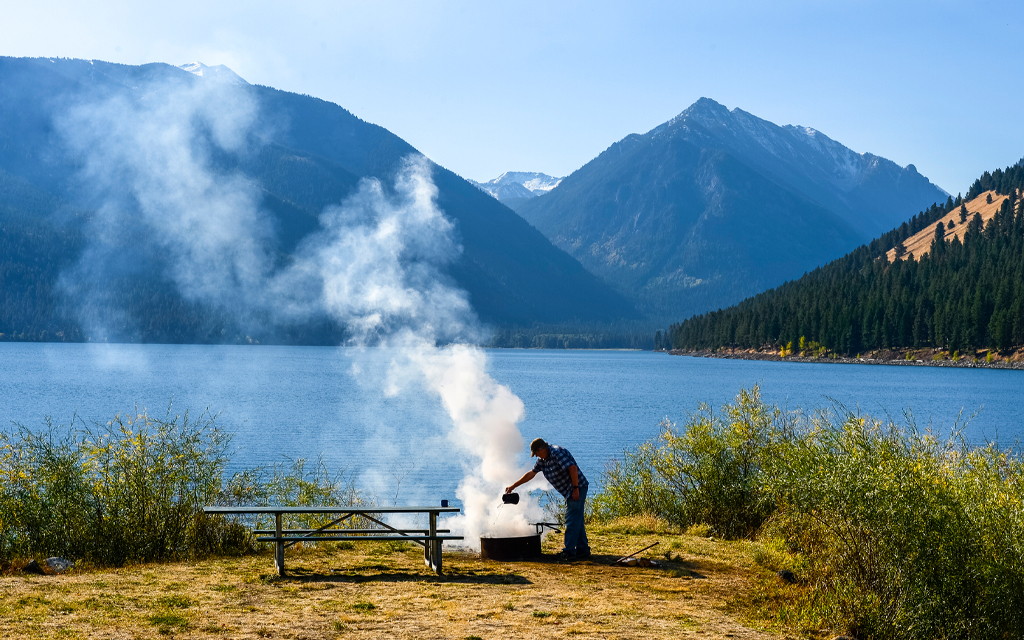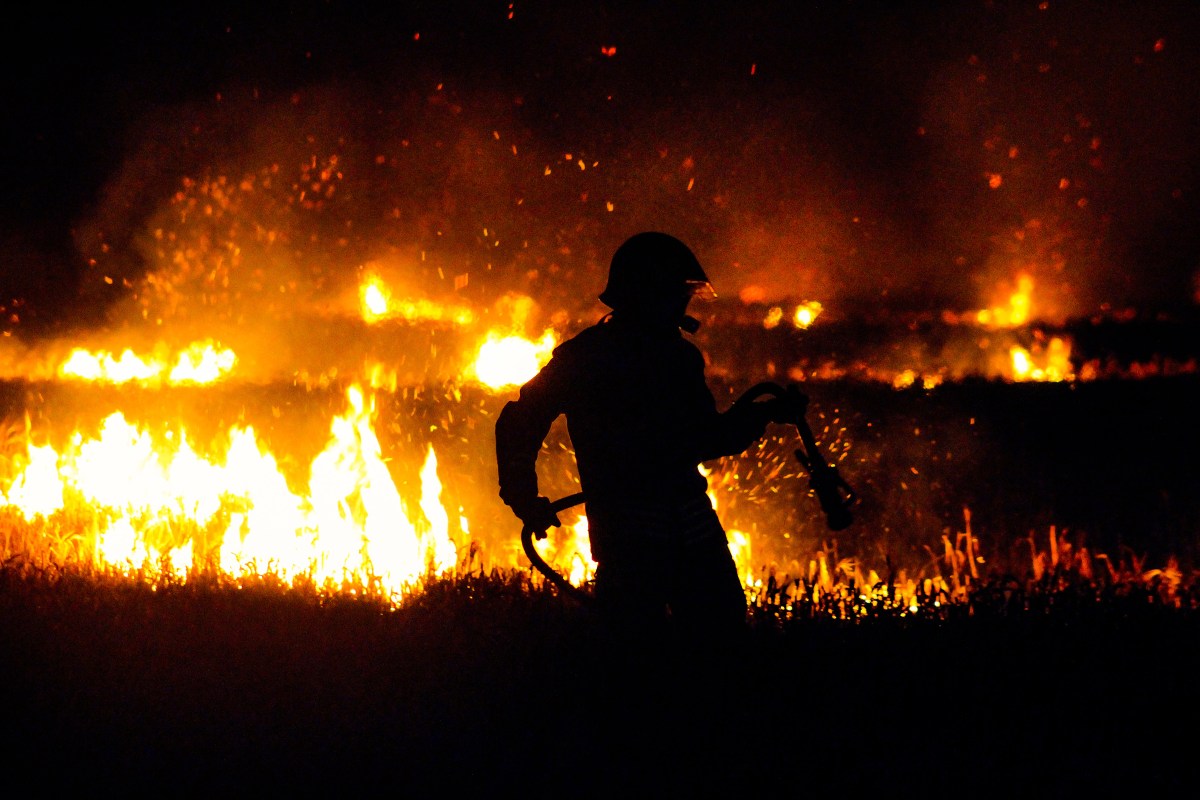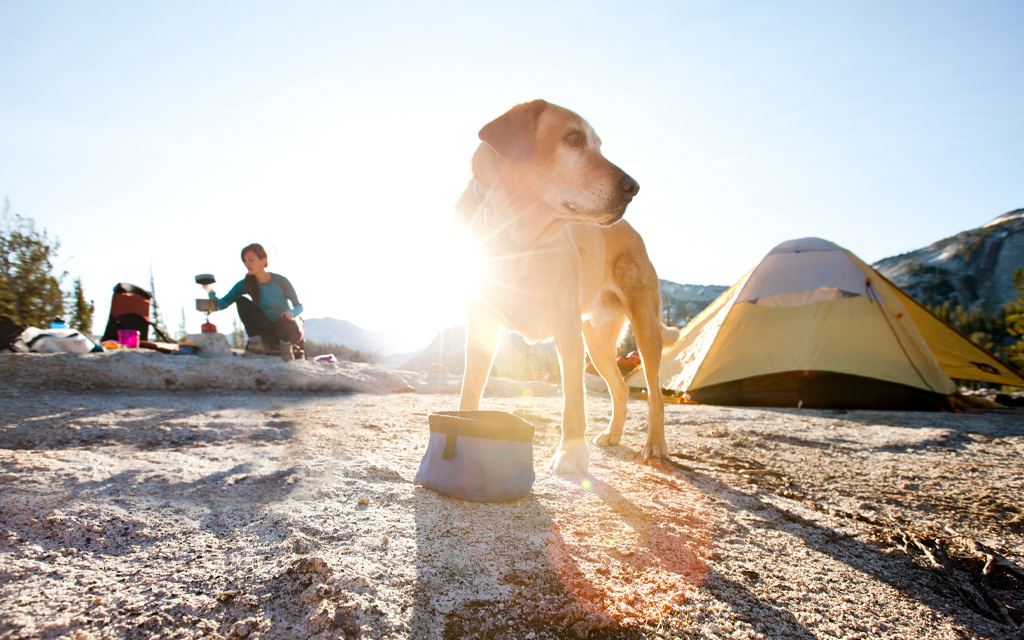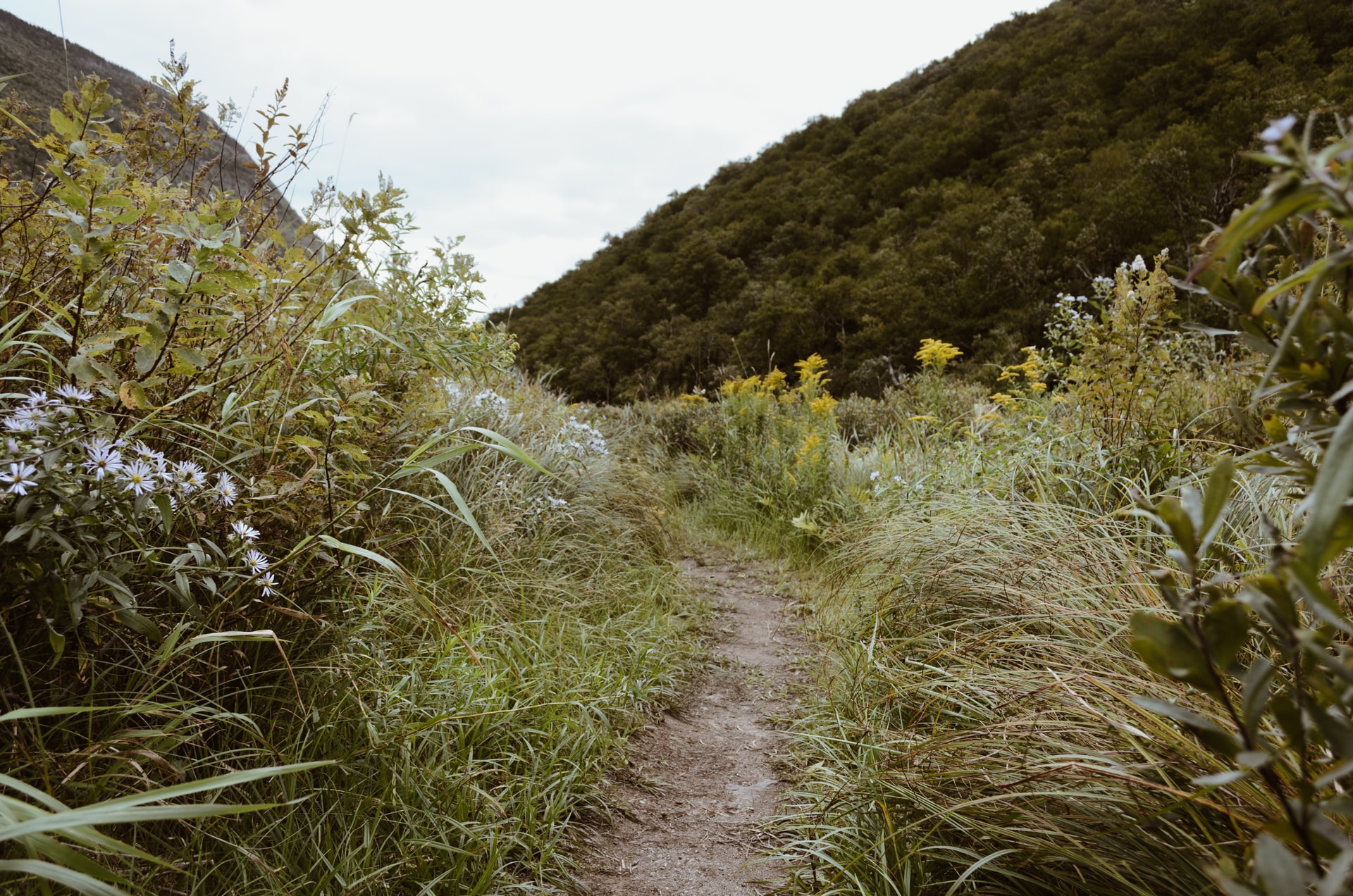I never thought we were in danger. Even when smoke filled the air and firetrucks bolted down the dirt road beyond our cabin, even when ash fell from the sky and helicopters buzzed overhead. Growing up on the East Coast, I heard stories of wildfires and watched their destruction on the news, but this was Big Sur, a picturesque slice of the California coast that was too pristine, too remote, too Edenic to succumb to a natural disaster. Or so it seemed to me.
Hours later, after leaving the house to explore the coastline, we returned to an onslaught of fire crews heading up the hill as ash drifted down like rain. The dirt road, once quiet and peaceful, set at a remove from the hustle and bustle of Highway 1, was closed. The fire chief blocking the entrance instructed us to find a nearby hotel, forcing us to leave our belongings behind as the Soberanes Fire tore through Los Padres National Forest.
Despite three months of round-the-clock fighting and prevention, the fire had burned more than 132,000 acres, destroying 57 homes and resulting in the death of one bulldozer operator. At the time — it was 2016 — it ranked 18th on the list of the top 20 largest ever wildfires in California. And like so many fires before and since, this one was the result of an illegal, unattended campfire.
According to the U.S. Department of the Interior, 90 percent of wildland fires in the U.S. are caused by people. Some occur as a result of downed power lines, others from discarded cigarettes, but many preventable wildfires materialize from campfires. It’s a problem so common that many states, including Washington, California and Utah, ban open fires every season either as a preventative measure or the result of an irreparable mistake.
As experts weigh their options before wildfire season begins each year (and the season continues to expand), taking into account predicted conditions and crowds, one solution seems obvious: ban campfires indefinitely.

Consider for a moment the data that illustrates how rapidly wildfire season is expanding. As NPR reported earlier this year, the U.S. Forest Service said that by 2015, fire season had gotten about two-and-a-half months longer than it was in the 1970s. That number now grows every year, and fires also burn more acres than ever before as the wet season becomes compressed. This forces us to make drastic decisions that include preventing wildfires by controlling the source of the problem — us, humans.
If you’re like me, you know such a drastic solution sounds tragic. Campfires are a primal symbol of the outdoors, a rite of passage among backpackers, hunters and casual nature lovers alike for centuries. Even in the dog days of summer when high temperatures supply more than enough warmth for comfortable evenings with friends, the campfire remains a staple, a place for people to gather at the end of what are usually some of their most cherished days of the year.
And yet, not unlike a child that enjoys a toy only to abuse it, perhaps our admiration for a campfire doesn’t extend far enough. We hold gender reveal parties that lead to fire-induced indictments, throw fireworks into gorges and leave flames unattended to decimate the landscape. For all the good apples that respect the rules of open campfires, a select few ruin it for the rest of us. And now we’re simply paying the price.
Naturally, it would take time to adopt an indefinite ban. I remember when Oregon and Washington banned campfires in the summer of 2018, forcing us to operate by the beam of a headlamp as opposed to the glow of a flame. I still made a campfire in Washougal County that burned for a few minutes before a local told me to put it out. And a friend did the same last summer, in Bend, before a Ranger saw the glow from a distance and pulled up to our campsite, dumping water and dirt on the open flames as we stood there in shame.
But this summer, while backpacking through Yosemite National Park as the Caldor Fire nipped at the fringes of Lake Tahoe, I finally came to enjoy life without a campfire when my fellow backpackers agreed that it wasn’t necessary nor ethical. We had a stove, we had warm clothing and we didn’t care to source firewood from the surrounding woods only to leave a mess in our wake. We discovered that, without a fire, the stars shine a little brighter, animals creep about through the woods, and our clothes don’t reek of smoke the next morning.
For those who disagree with such a punishing pill to swallow, I only ask that you remember how we got here. Climate change, drought and irresponsibility all play a role, and all occur as a result of humans. Spend time without a campfire and slowly you’ll learn to appreciate life beyond the dazzling flames, just as I did. And if you still think an indefinite ban is needless, consider the fact that California is still on fire as we breeze past the halfway point of autumn.
Maybe this isn’t the future we want. But it is the future we’ve earned.
This article appeared in an InsideHook newsletter. Sign up for free to get more on travel, wellness, style, drinking, and culture.
























